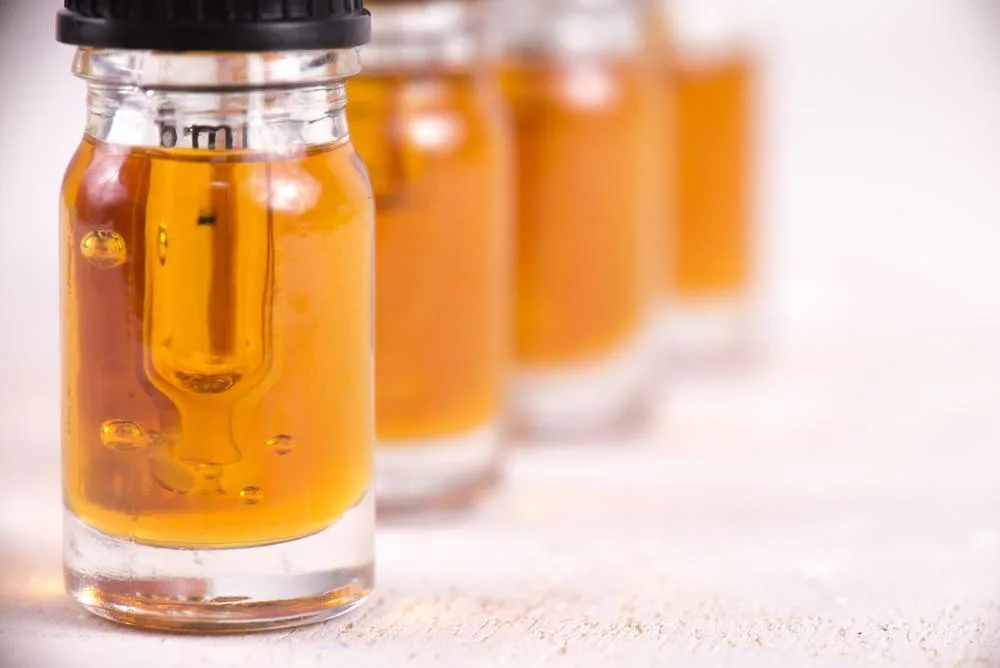In recent years, CBD oil has exploded in popularity. From treating insomnia and depression to reducing pain and inflammation, the FDA has already approved one CBD drug. CBD has been touted as a cure-all for nearly every ailment under the sun.
That said, those who suffer from skin conditions such as eczema and acne now have a growing interest in the product. Could CBD oil finally be the solution to their skincare woes?
The unsatisfying answer is maybe, maybe not. Here is a closer look at what oil is and what it can do for our skin:
What is CBD Oil?
CBD oil comes from cannabidiol, a component of the cannabis plant. It can be derived from either marijuana or hemp, both of which are part of the cannabis family.
When derived from hemp, CBD oil contains no more than 0.3 percent THC (a cannabinoid which has psychoactive components). Hemp-derived CBD oil is found in the form of gels, gummies, tinctures, oils, supplements and more.
How Does It Work?
There’s something about the human body that you may not have learned in high school. Our body has an endocannabinoid system, named after the plant which led to its discovery. This complex system comprises cannabinoid receptors and neurotransmitters which help regulate various mechanisms such as pain, inflammation, sleep, and cognitive function.
The endocannabinoid system is a system that we are still trying to understand. As a result, we are not completely sure of how and why CBD oil influences our body’s cannabinoid receptors in the way that it does. The two known cannabinoid receptors that are piquing the interests of scientists are CB1 and CB2.
Both receptors are located in human skin tissue and play significant roles in our body’s everyday functions. If that’s not enough, CBD oil stimulates these two receptors. When that happens, it can subsequently produce a variety of physiological changes in the body.
How CBD Oil Can Potentially Improve Skin Health
Clinical studies on CBD oil are currently limited. Why so? CBD oil is still evolving in terms of legality. However, there is a growing body of research that suggests CBD oil can benefit skin health in various ways.
Potential Treatment for Acne
Acne vulgaris is the most common skin condition, affecting 50 million people in the United States. Research shows that CBD oil has the potential to help alleviate acne symptoms.
According to a 2014 study, CBD provides anti-inflammatory effects and inhibits human oil production, which can help in the treatment of mild to moderate acne.

Another way in which CBD oil can help control your acne is by reducing your stress. Stress has been shown to exacerbate acne, and there is a small amount of evidence which demonstrates the oil’s potential as a treatment for anxiety (1)
Reduce Itch and Inflammation
CBD oil contains an anti-inflammatory compound which researchers believe could have therapeutic value for treating chronic skin conditions such as psoriasis and eczema. One promising study from the University of Colorado School of Medicine found that eight of the 21 patients who applied CBD cream twice a day for a duration of three weeks saw a significant improvement in their dry, itchy skin.
Intervention for Alcohol Cravings
How does alcohol affect the skin? Well aside from dehydrating it, it can also potentially exacerbate symptoms of acne, rosacea, and eczema. CBD oil may be a potential treatment to help control alcohol cravings in addicted individuals.
New research has found that CBD’s therapeutic properties can help regulate compulsive behaviors that are associated with psychological withdrawal symptoms (2). This could be a valuable alternative to pharmaceutical drugs, which may have unwanted side effects.
What We Still Need to Wait For
There’s a lot of buzz about the benefits of CBD oil for the treatment of skin conditions. While there is growing evidence for its potential positive effects, this doesn’t mean that you should ditch your current skincare regimen.
Here’s why:
There is a need for larger studies
Not only are current studies limited in quantity, but they are also limited in scope. Businesses who claim that CBD oil is a magic cure-all for specific conditions typically aren’t using full-scale, research-backed science to back up their claims.

Many of the studies surrounding CBD have been conducted using animals or small sample sizes (whereas tried-and-true ingredients like salicylic acid have been proven safe and effective over a long period). The research on CBD is so slow and limited. Why is this? That brings us to the next challenge.
Legal Hurdles
Currently, the legality of CBD oil is in flux. While hemp-derived CBD oil is legal in all 50 states because it produces no psychoactive effects, marijuana-derived CBD oil has tighter restrictions.
The federal government has not yet legalized CBD and it continues to be classified as a serious drug. The legal hurdles surrounding CBD make some researchers avoid the subject out of fear of losing government grants.
Unregulated Products
Another major caveat to using CBD oil products for your skin is the potential waste of money. The FDA has warned the public that it doesn’t actively regulate cannabis products. This means that the CBD tincture or cream you purchased may not be effective or safe.
In order to treat rare forms of epilepsy, the FDA has thus far only approved one CBD drug. You need to be careful with which CBD oil products you buy. At least until additional drugs are approved and/or greater oversight is provided.
Bottom Line
More people want a natural remedy for their chronic skin conditions. While CBD oil has shown promise in the treatment of acne, psoriasis, and eczema, it shouldn’t be considered a viable replacement for your current skincare regimen.
If you decide to supplement your skincare routine with CBD oil, be sure to vet the CBD companies thoroughly. Because the FDA doesn’t closely regulate the cannabis industry, companies can easily make unproven claims and take advantage of consumers.



![women [longevity live]](https://longevitylive.com/wp-content/uploads/2020/01/photo-of-women-walking-down-the-street-1116984-100x100.jpg)










